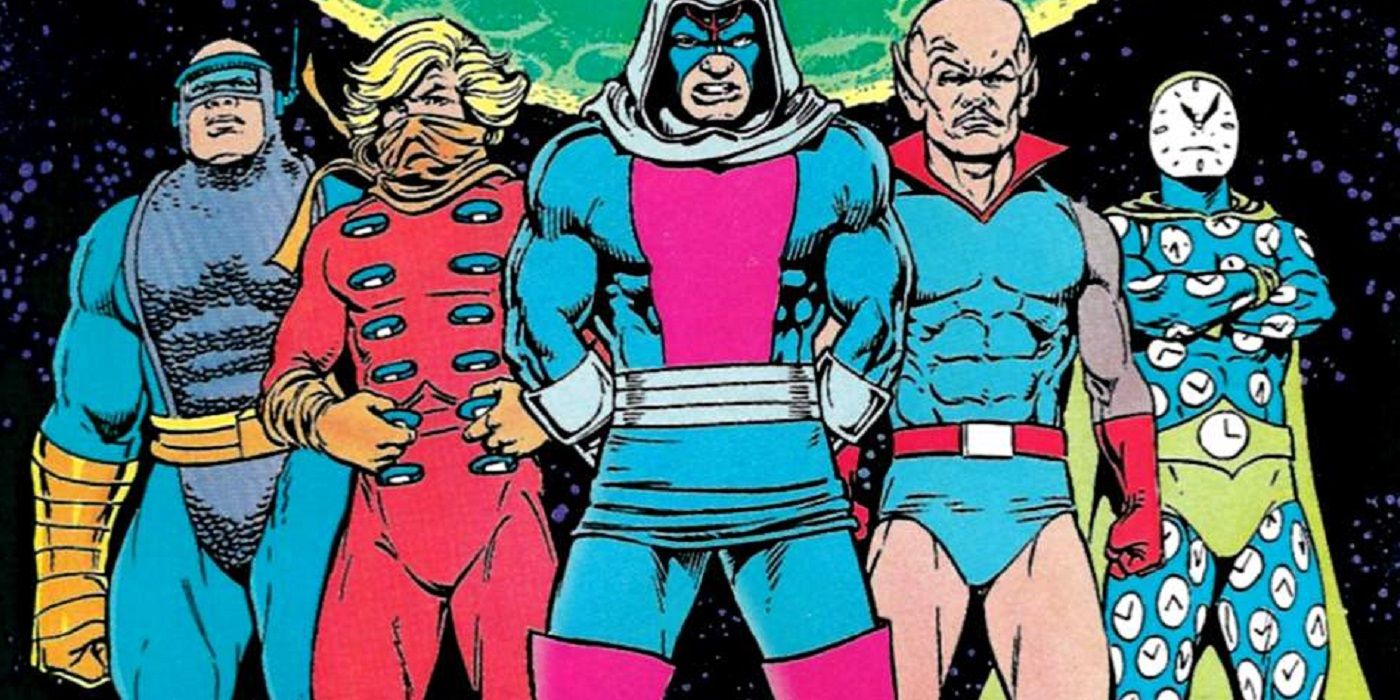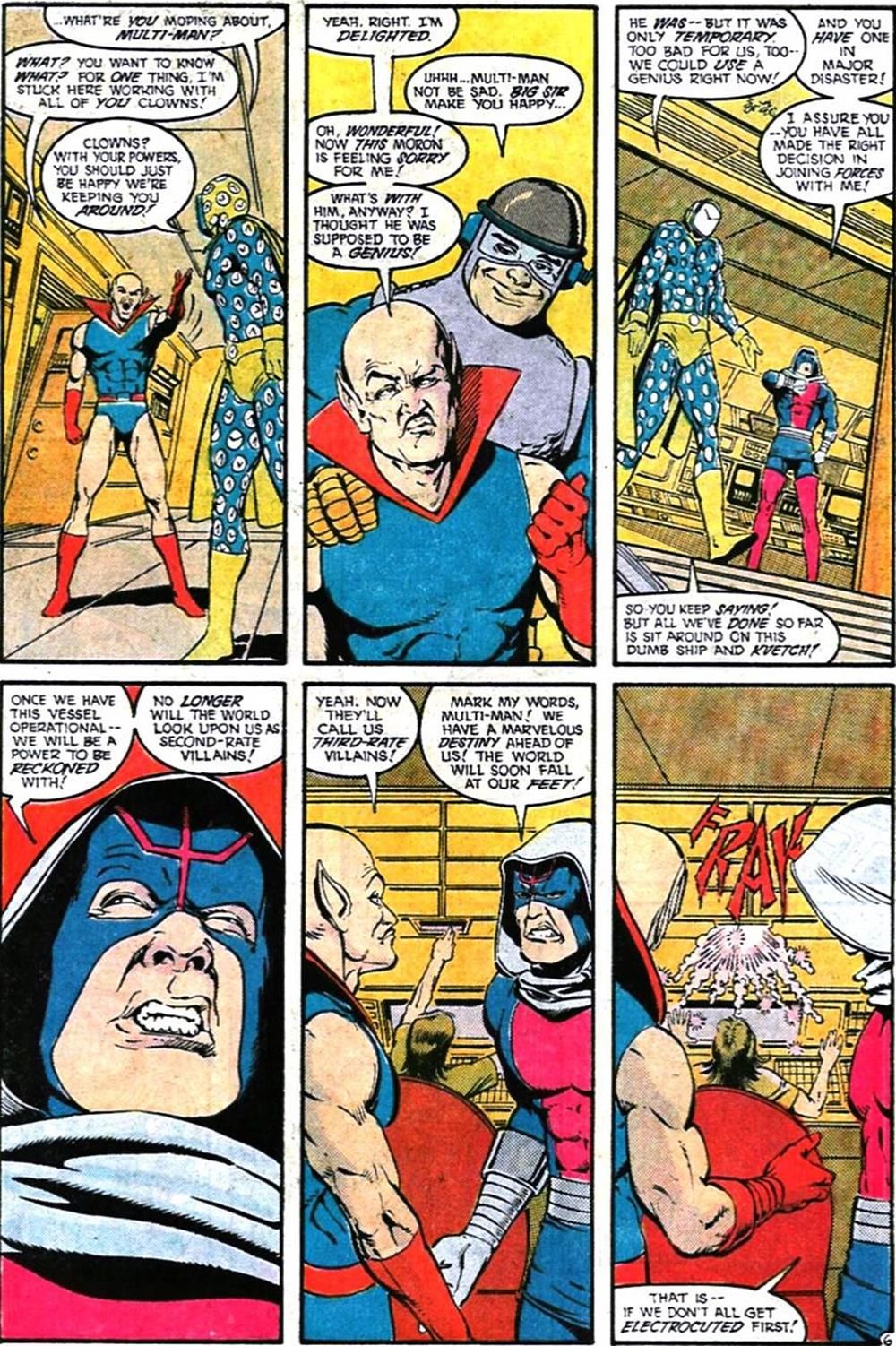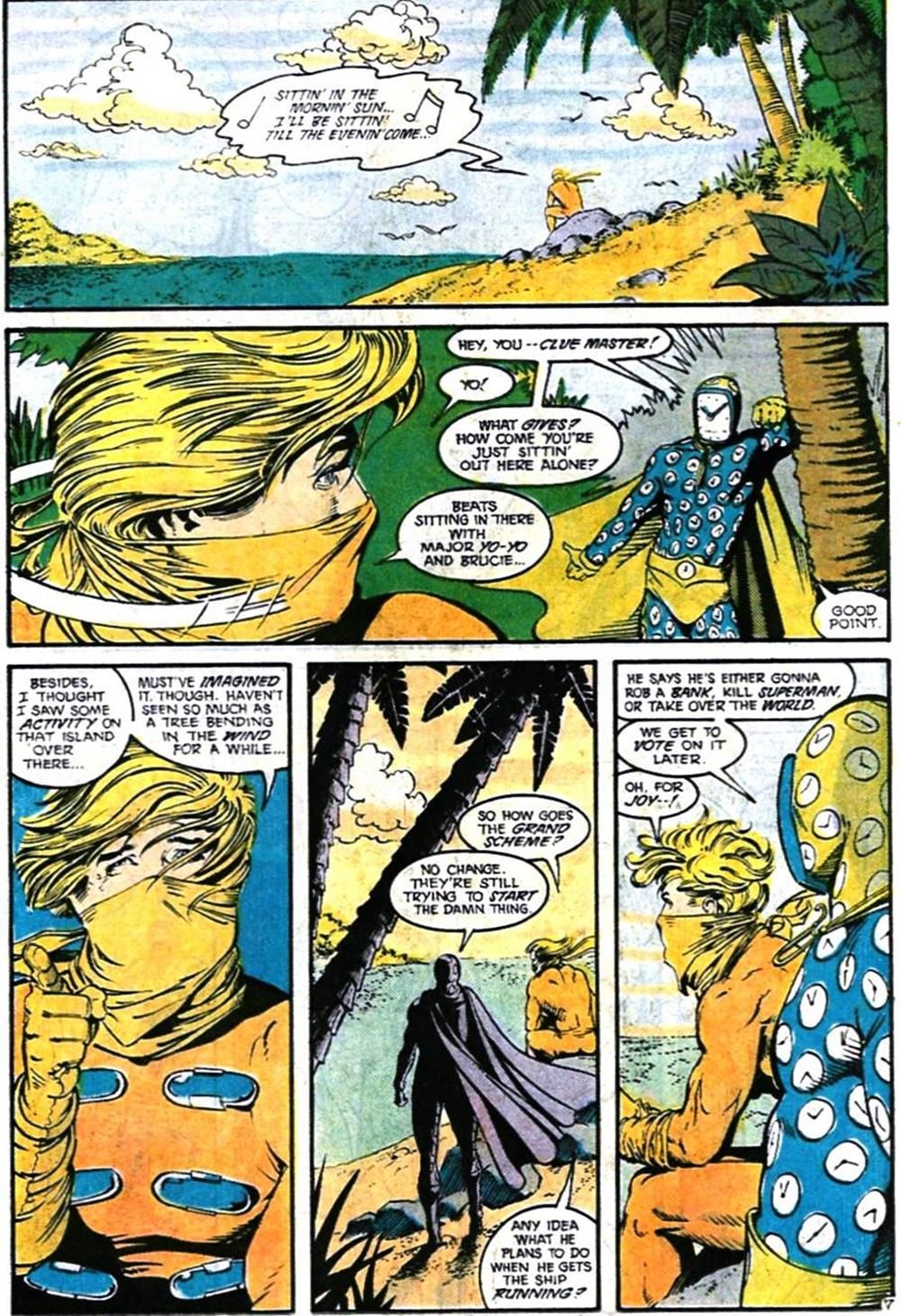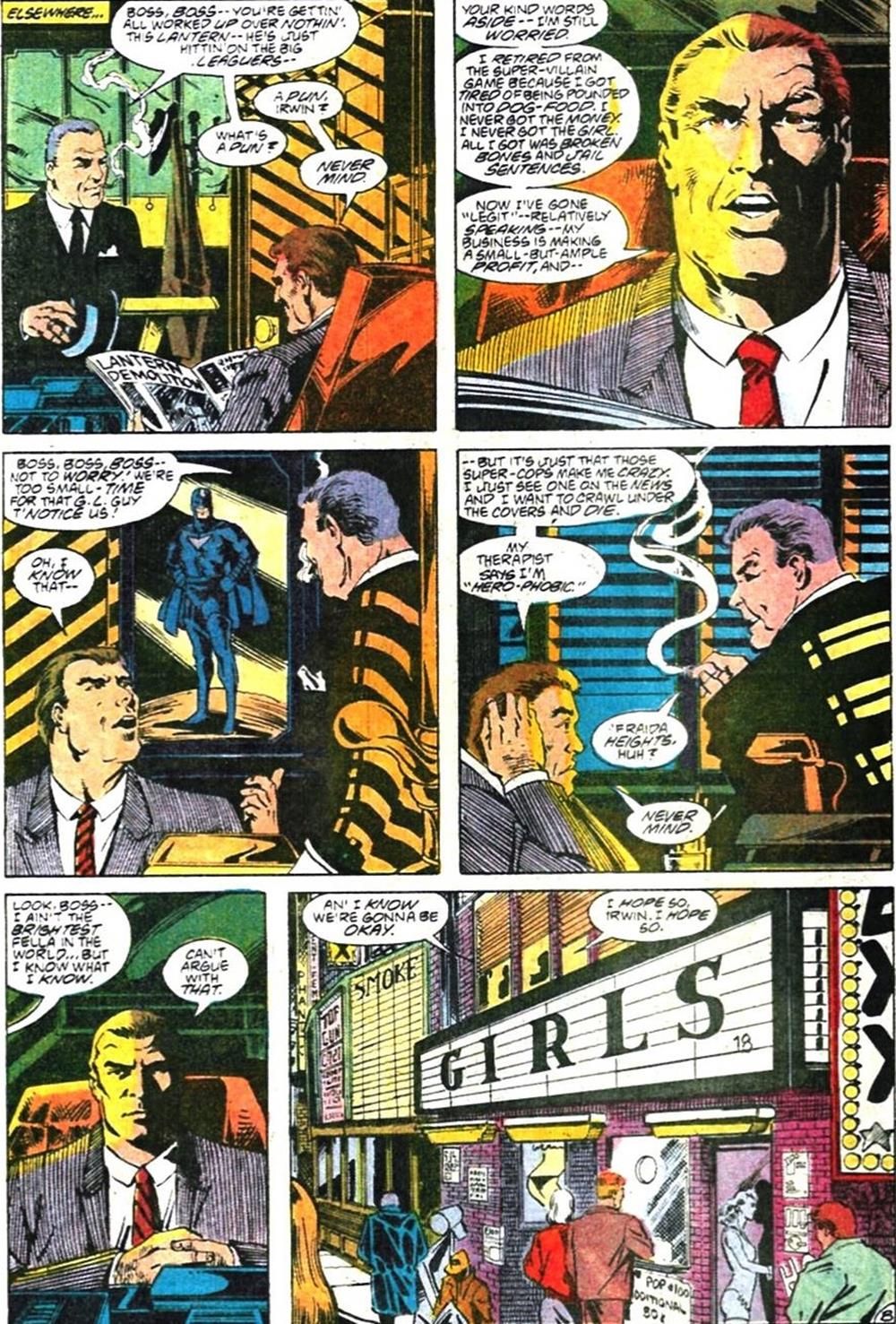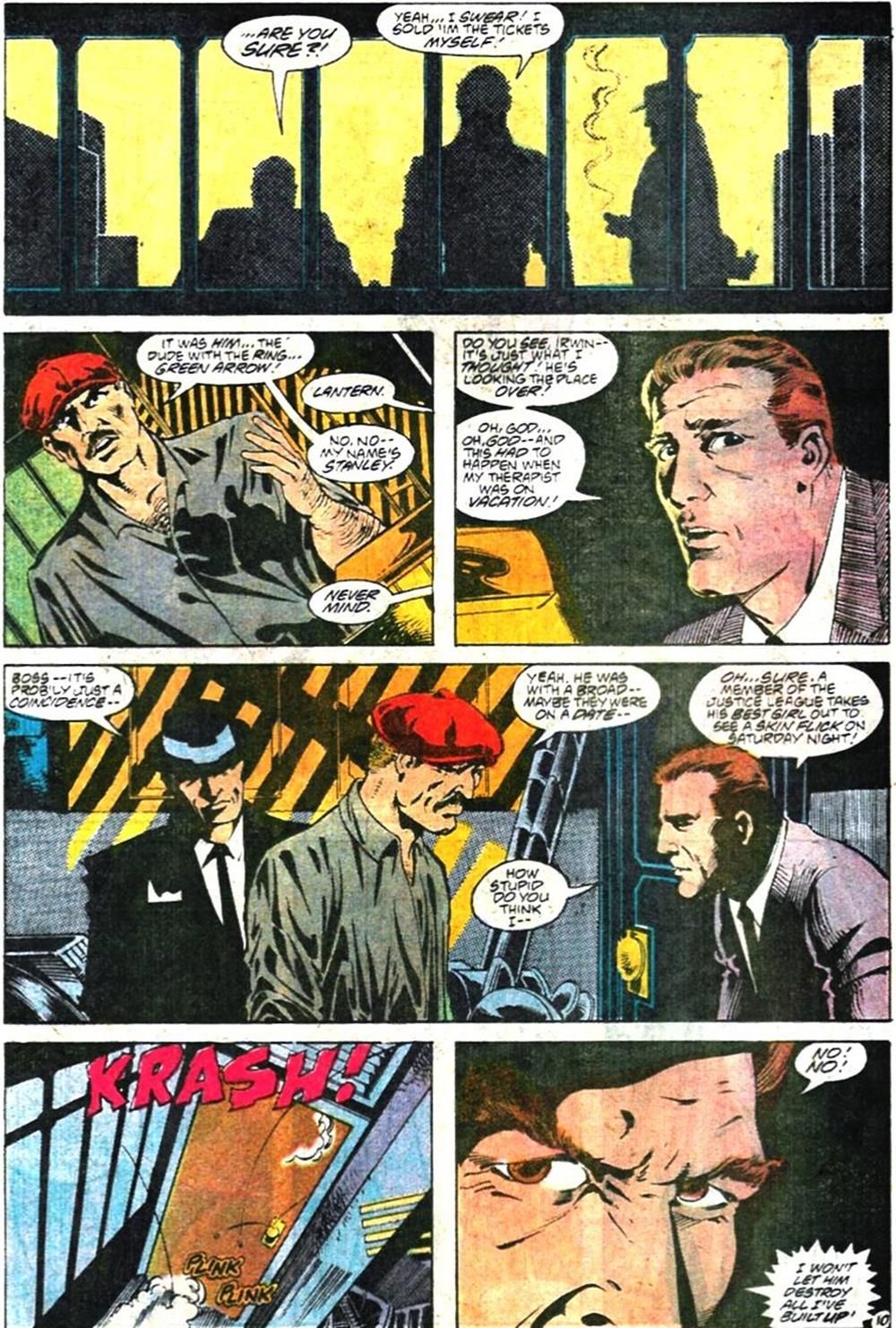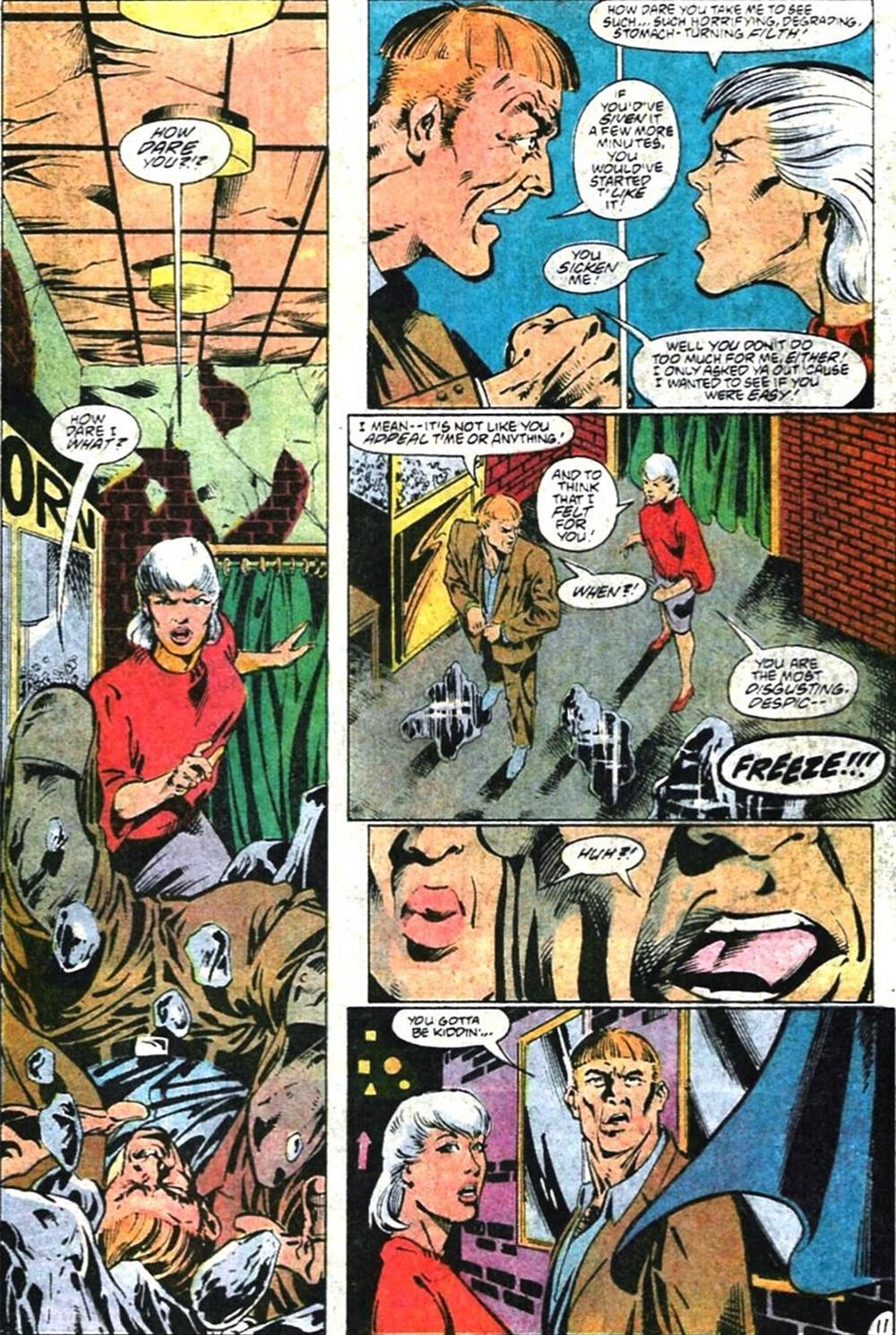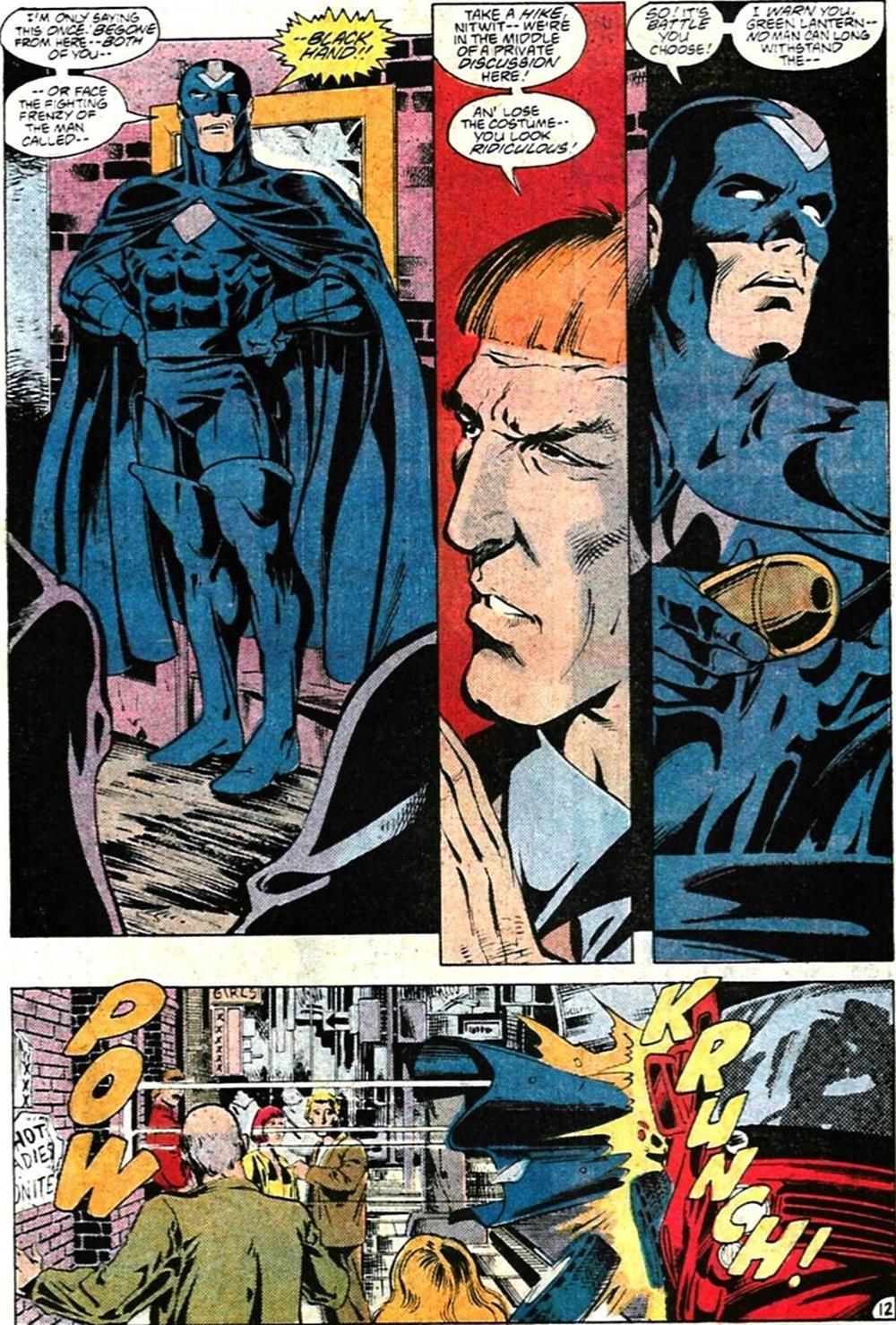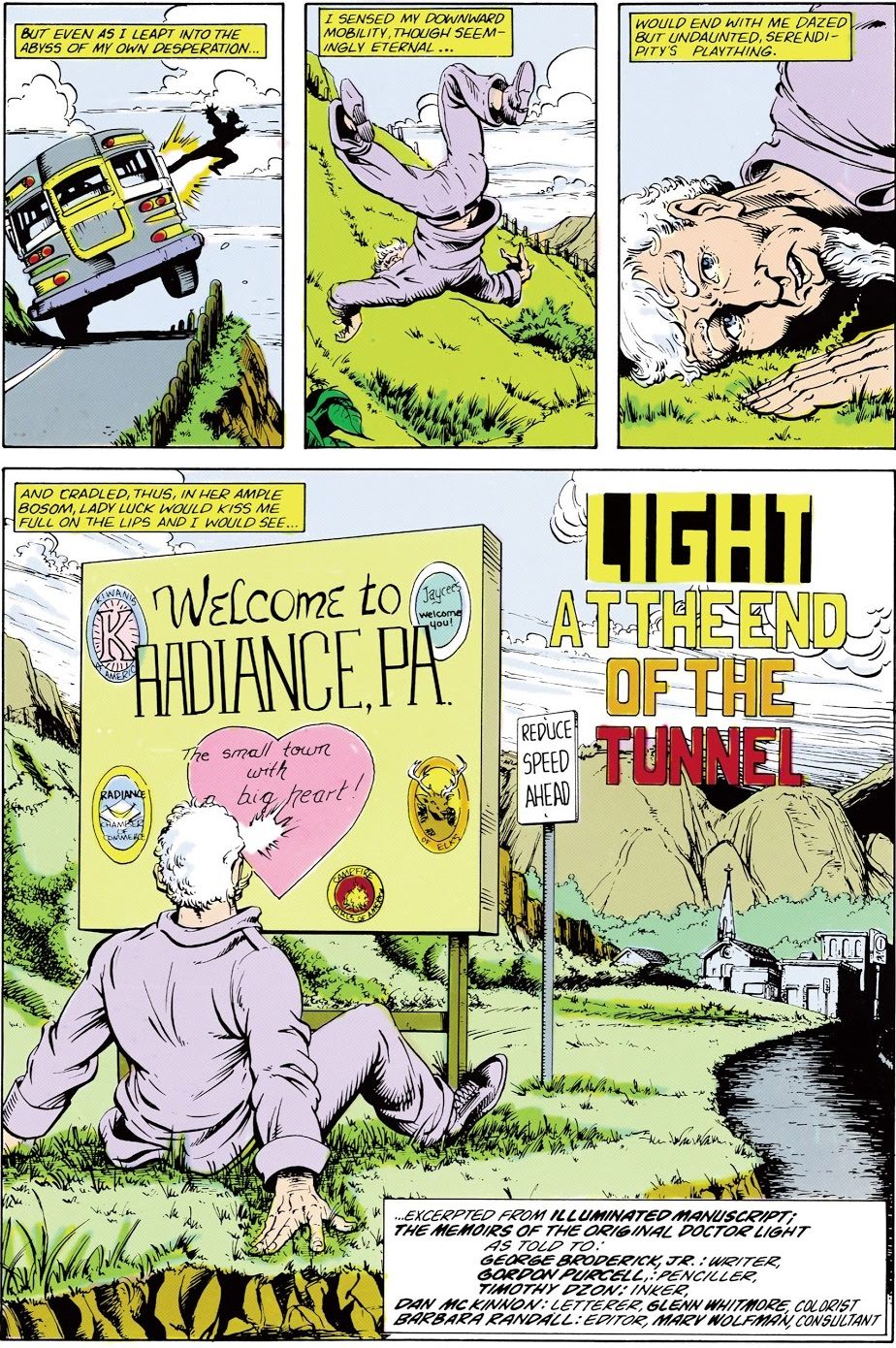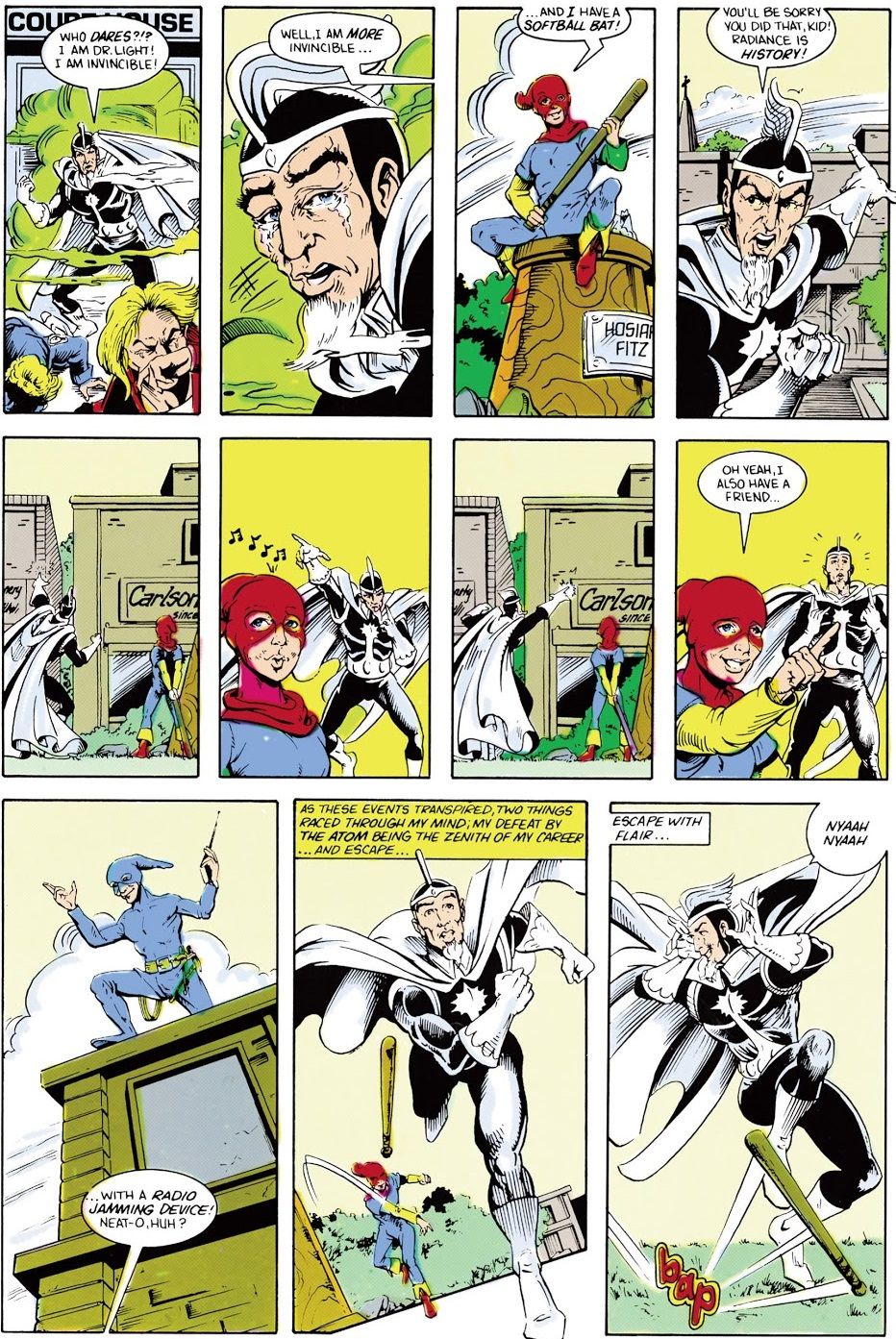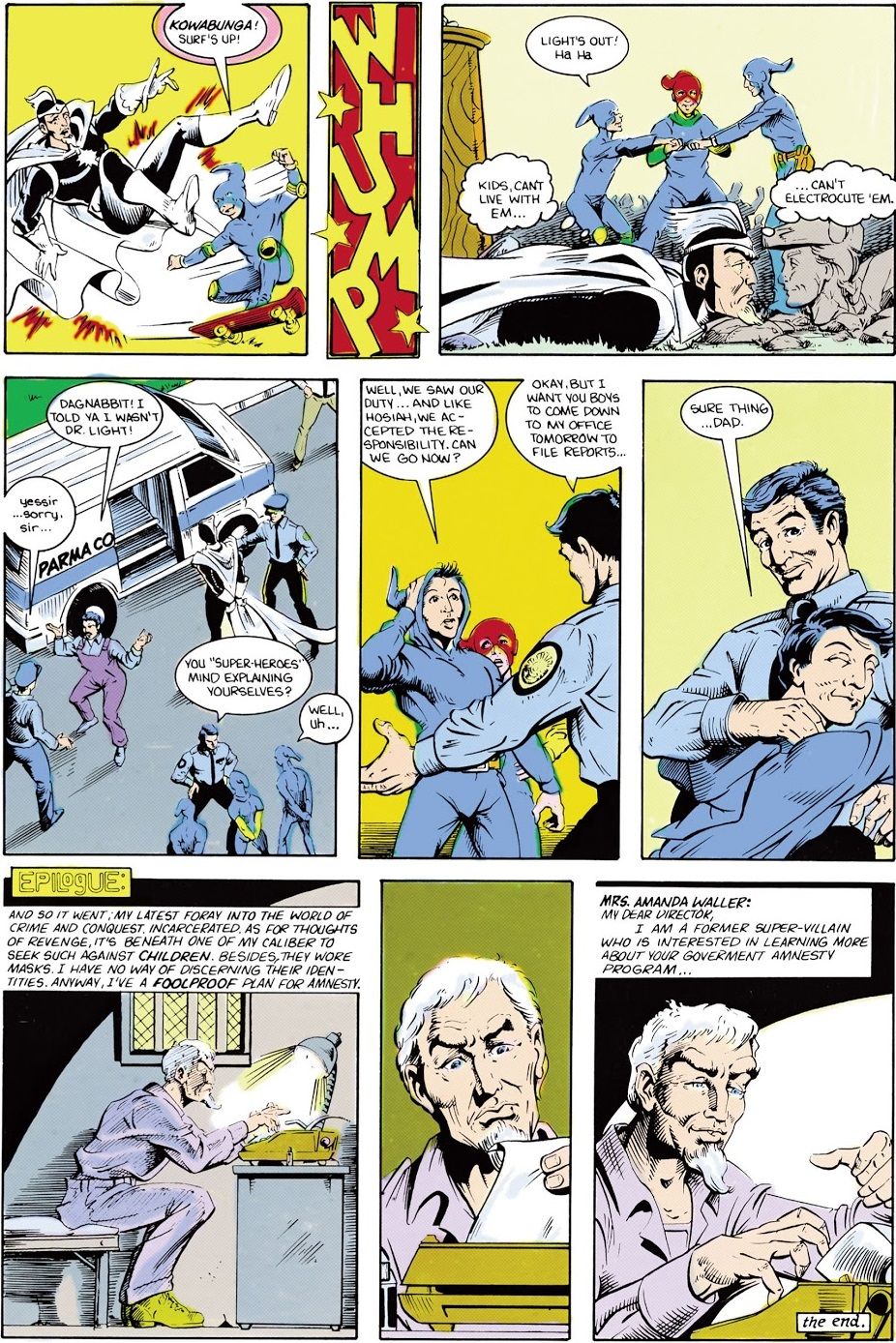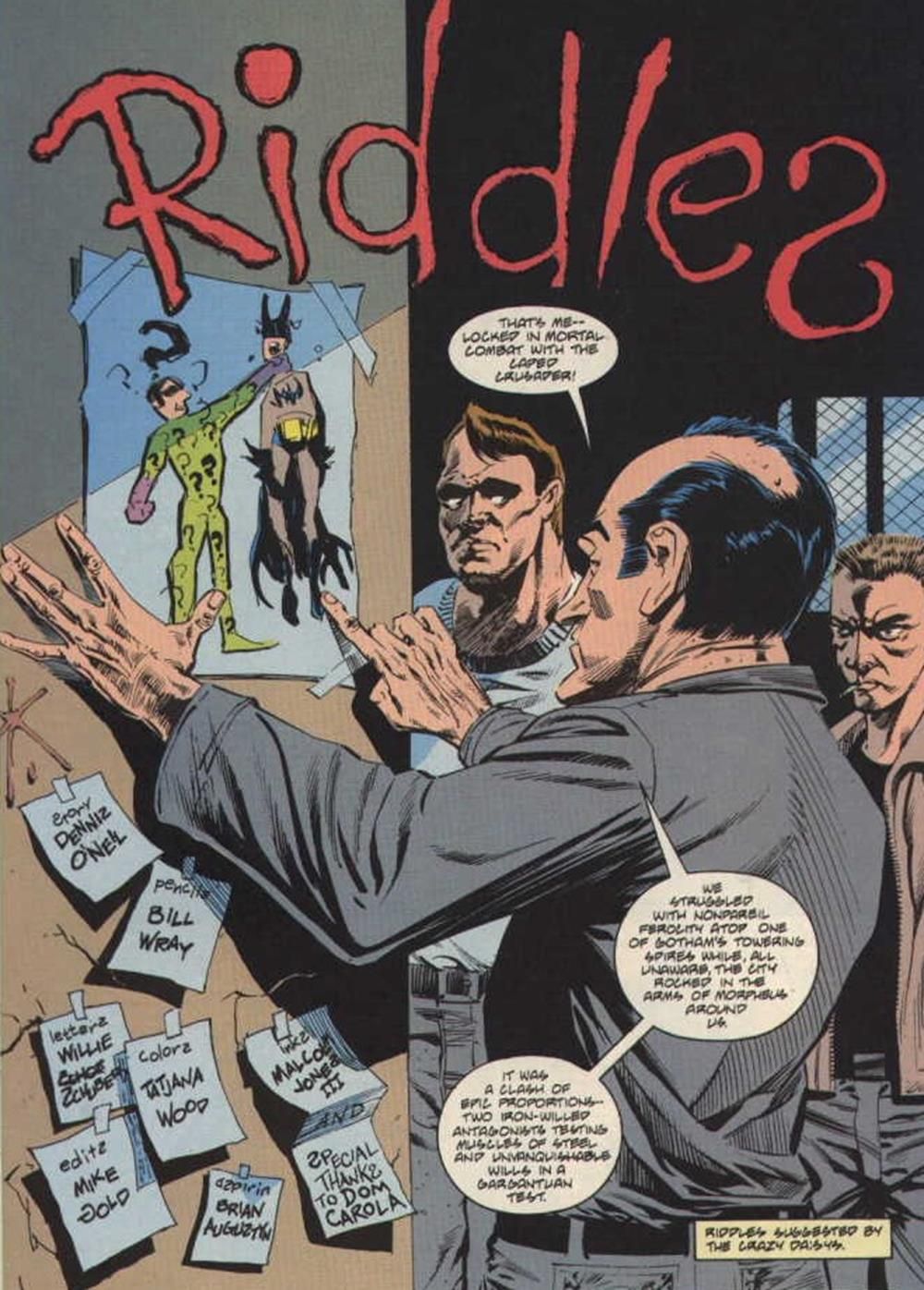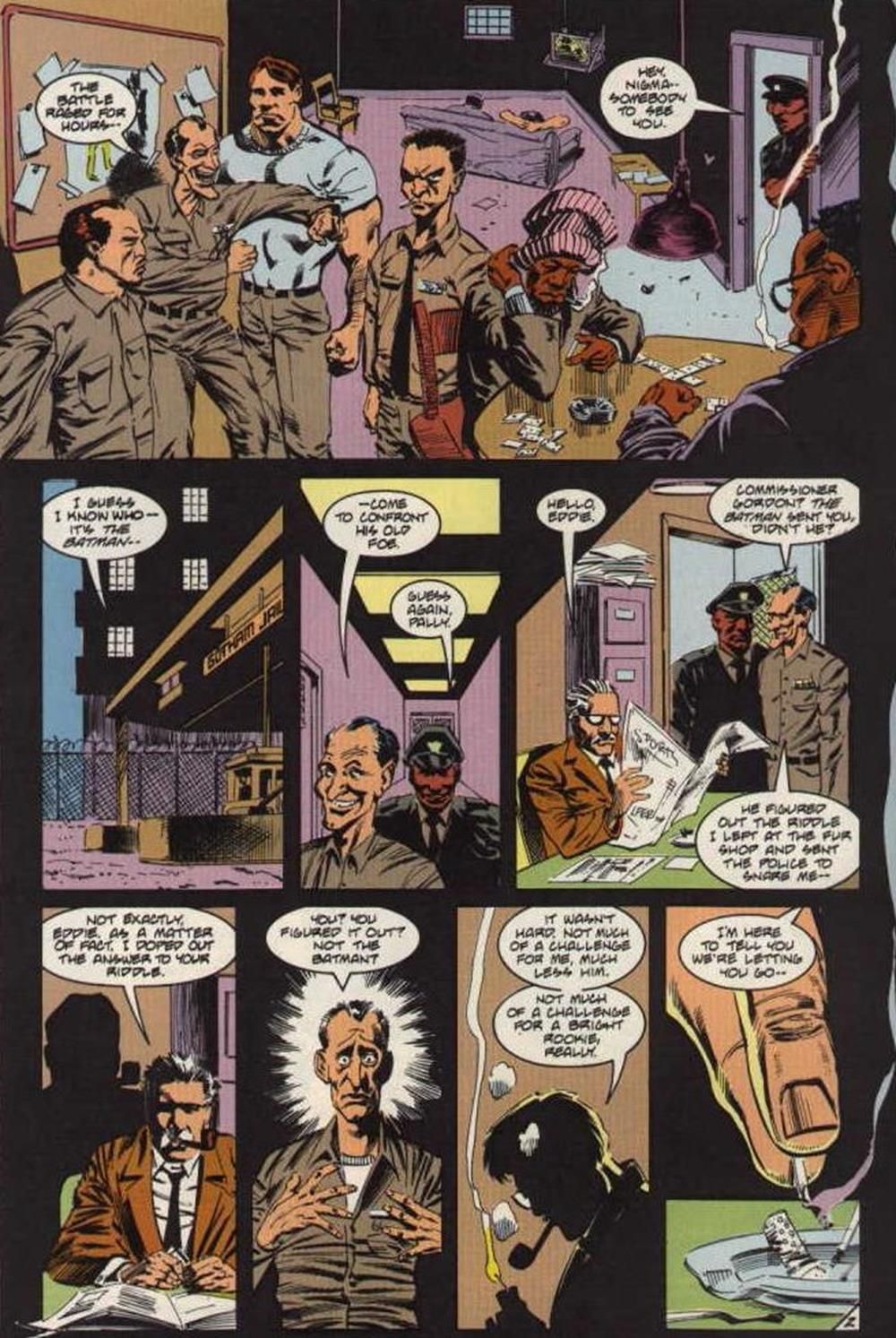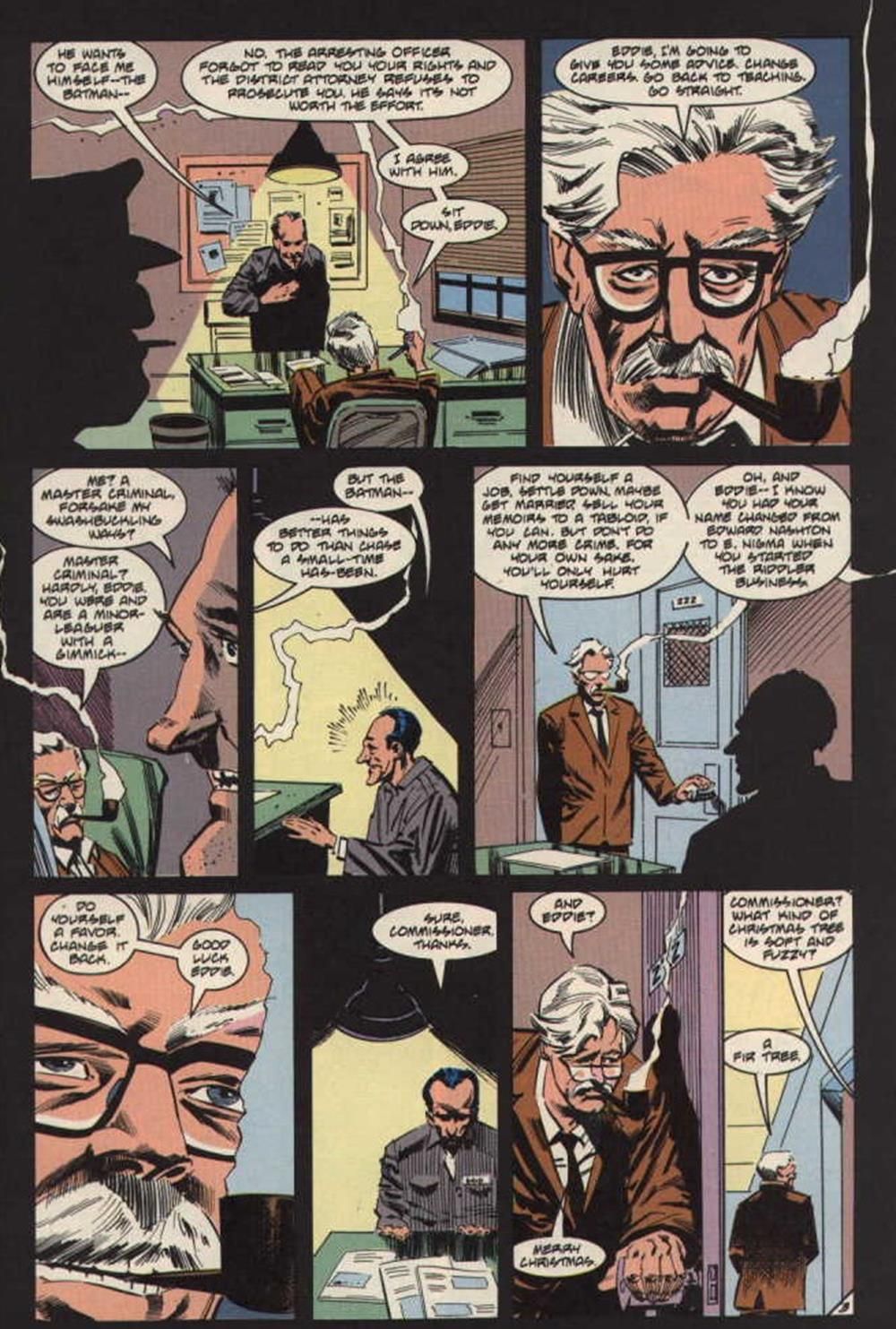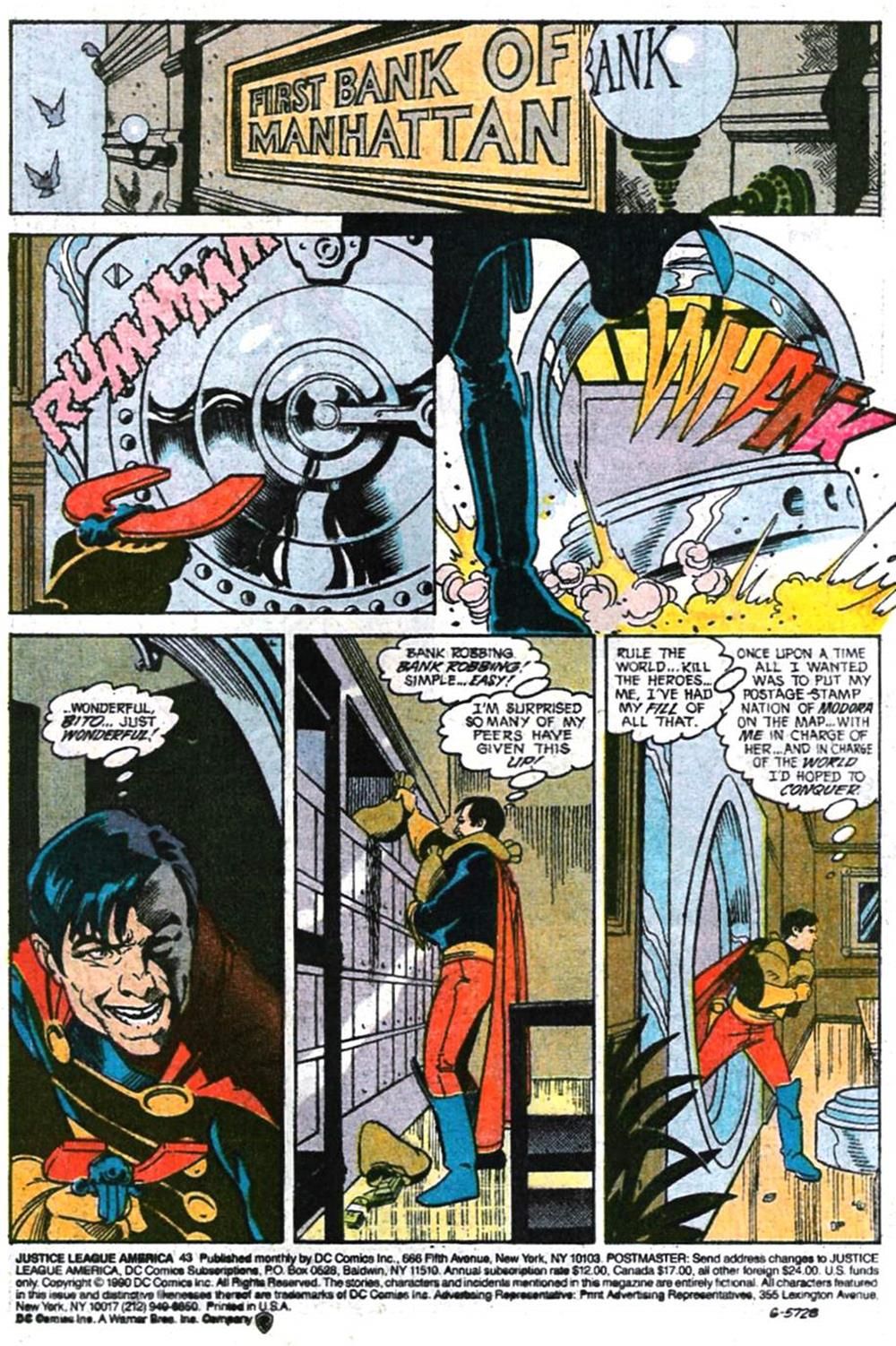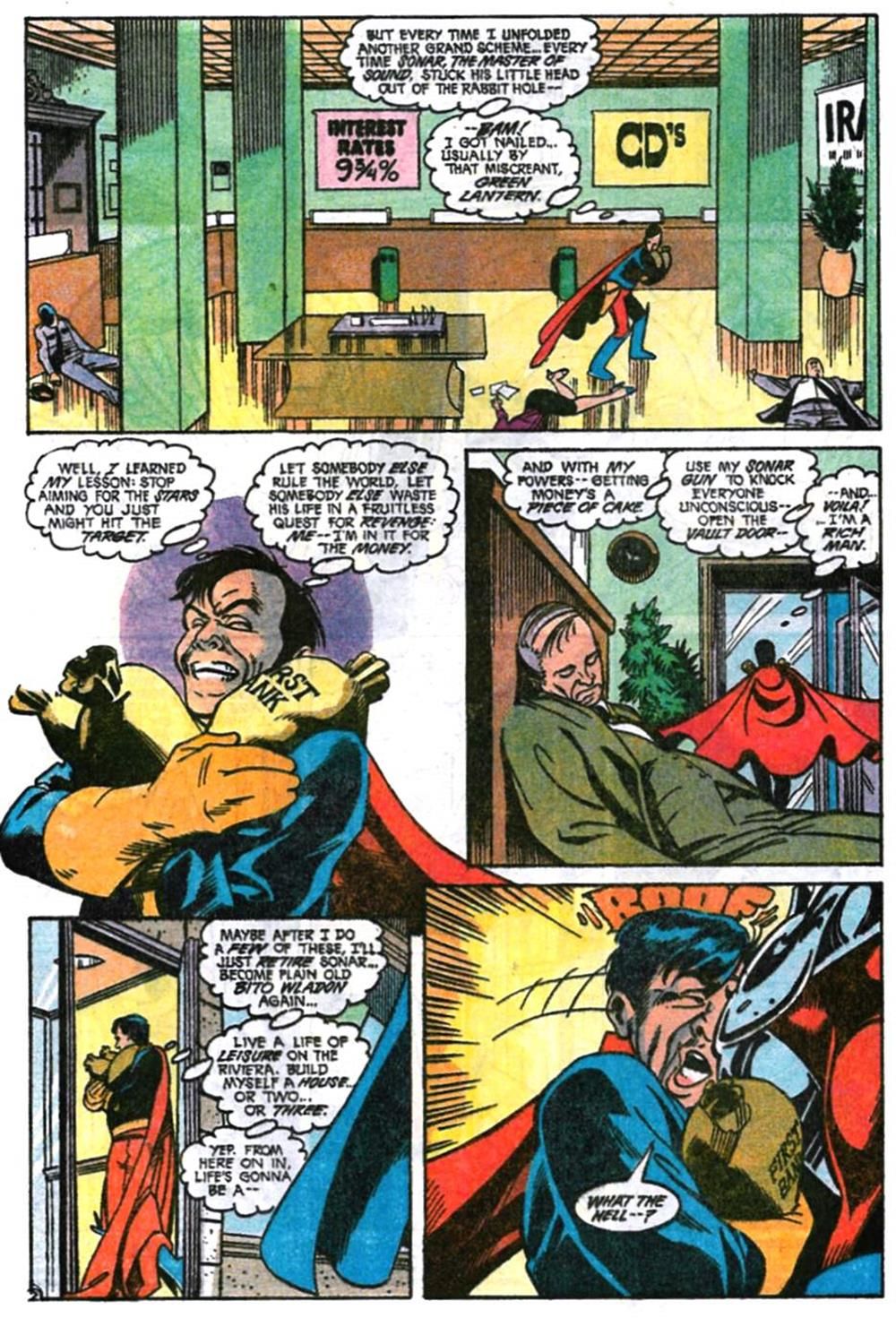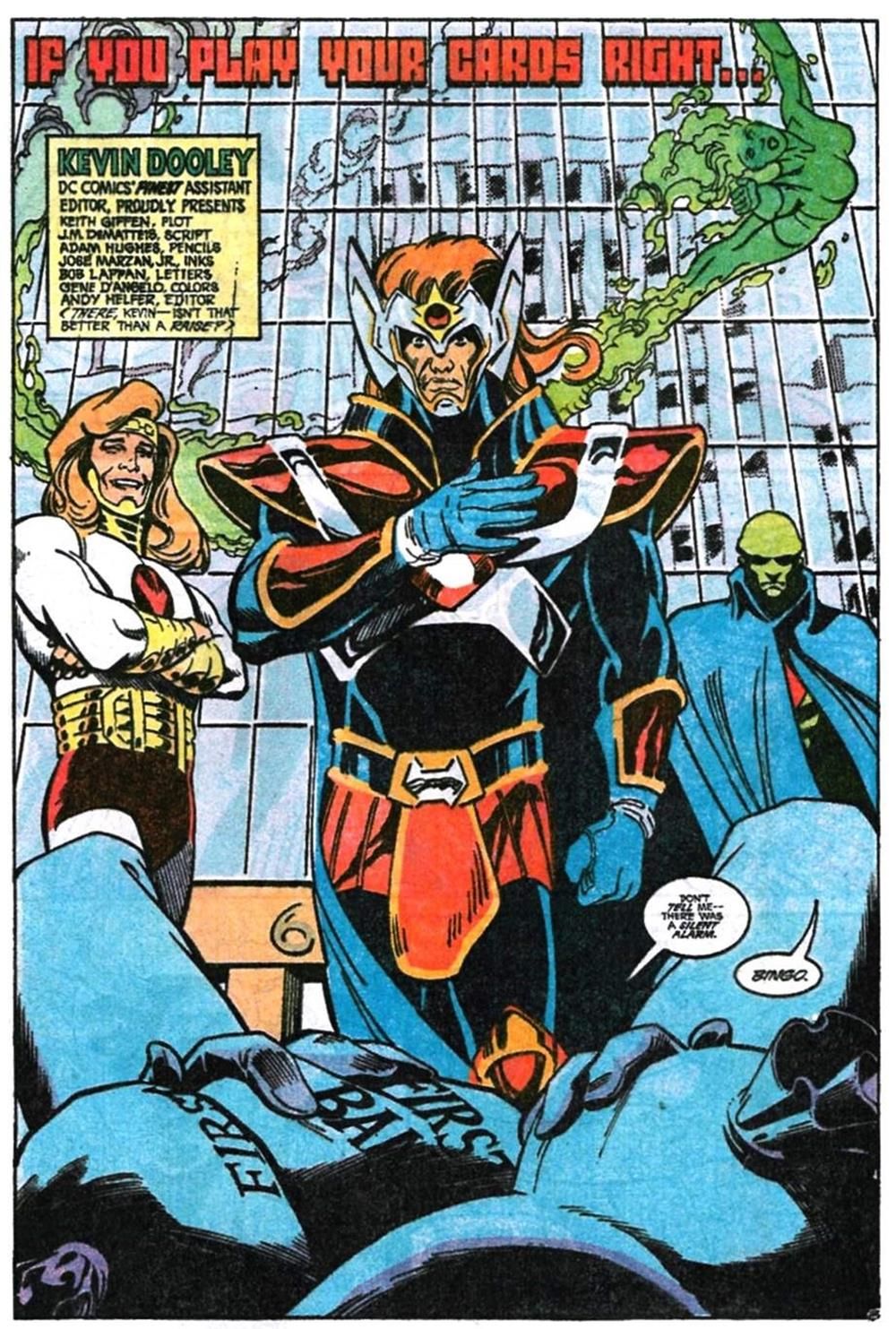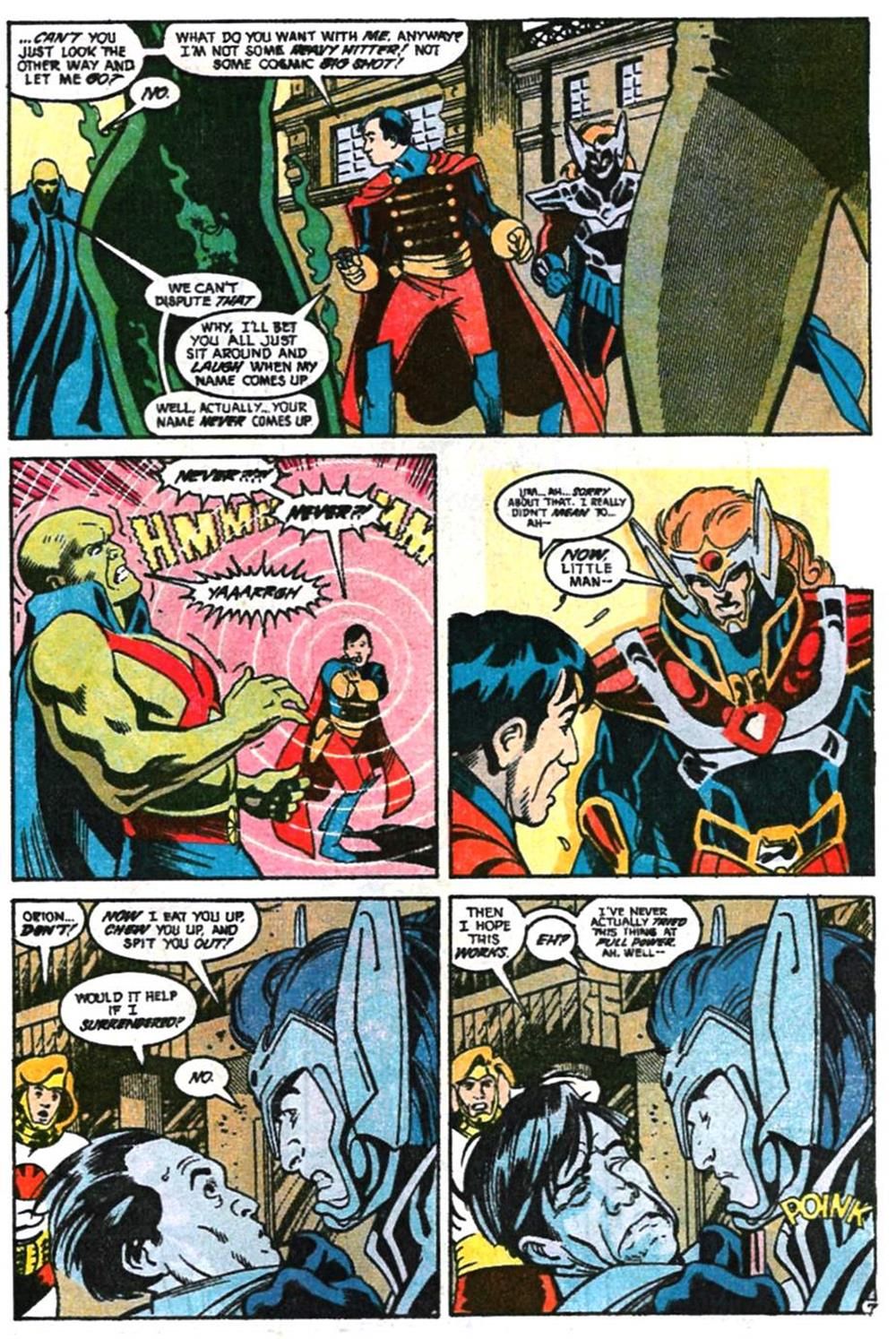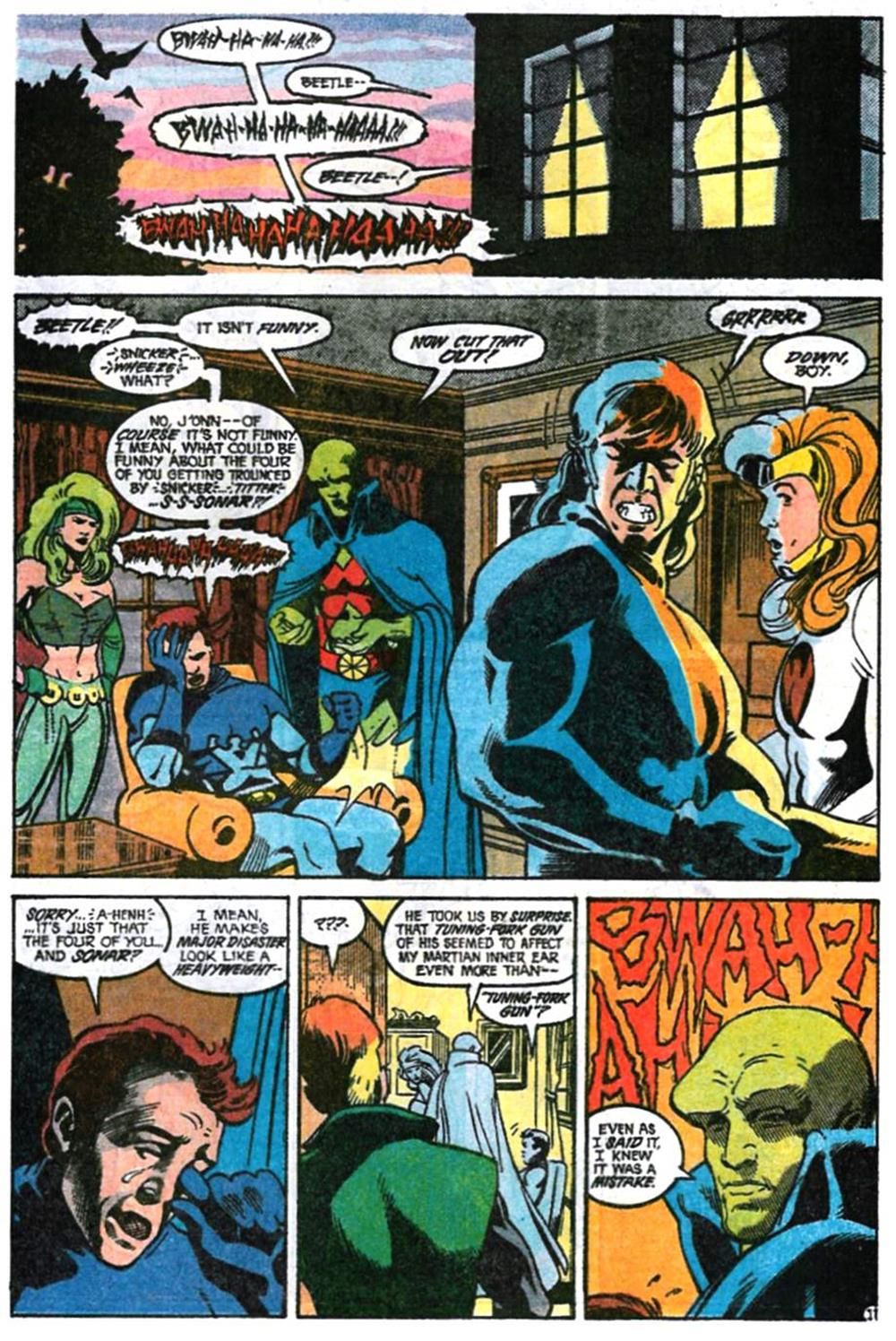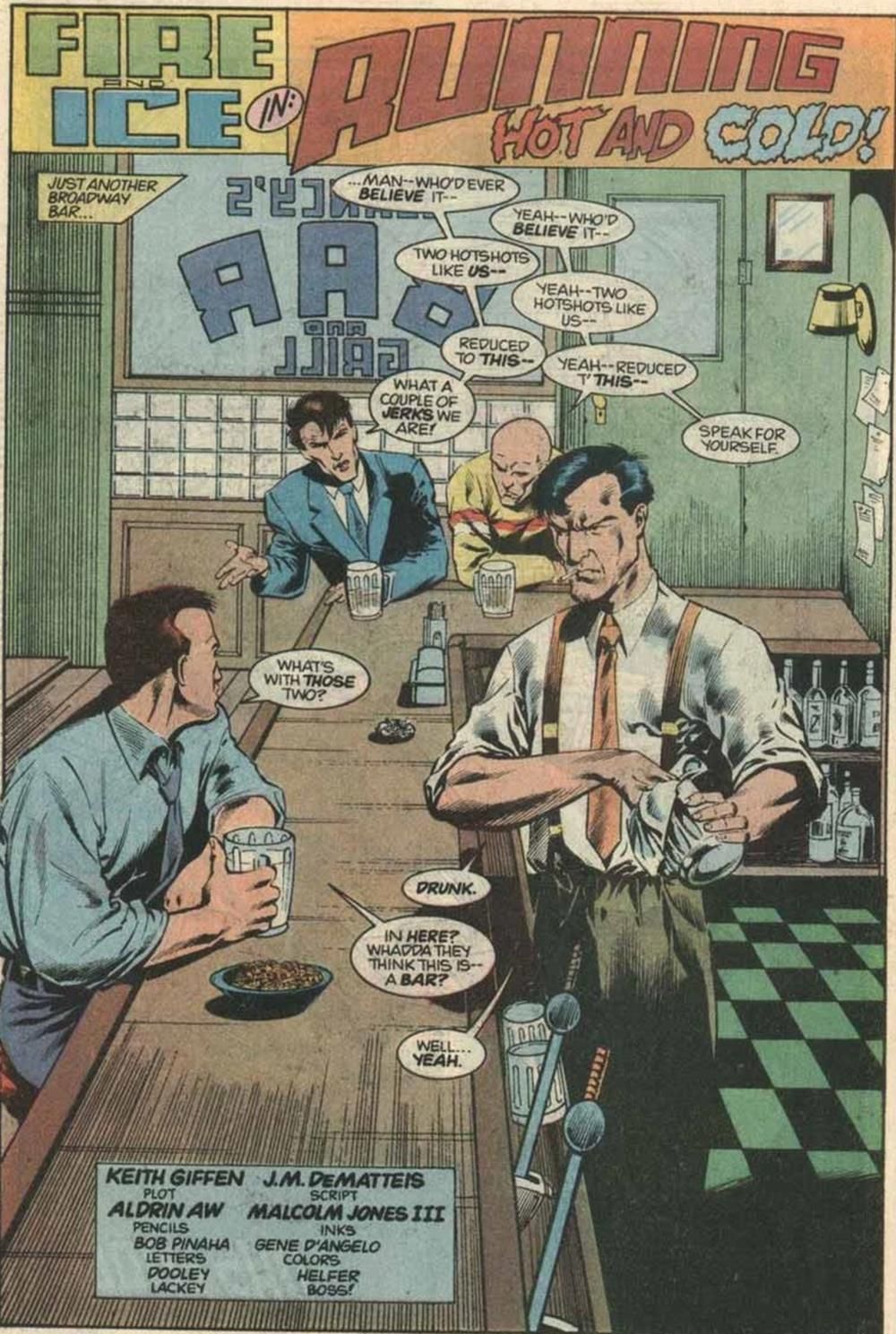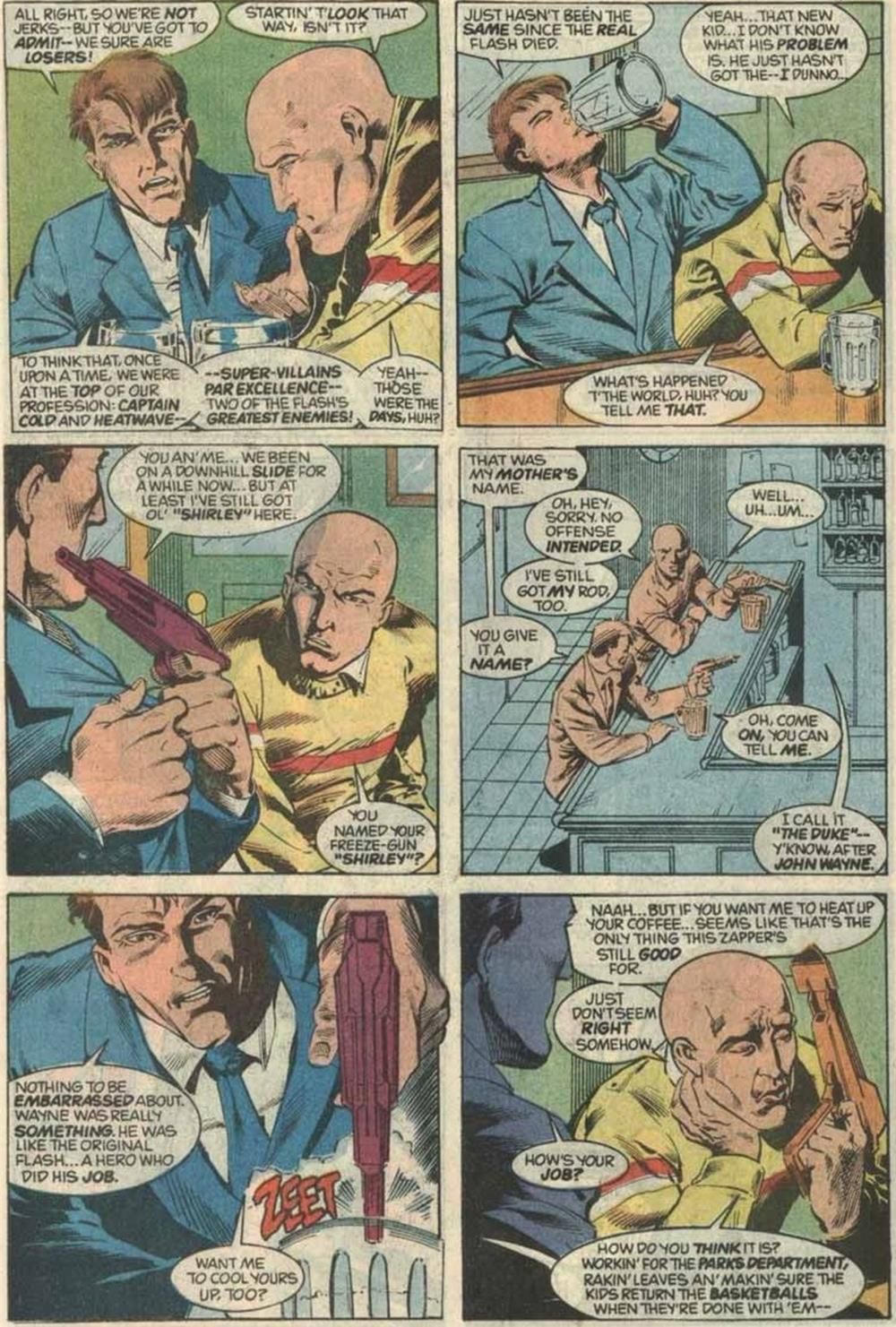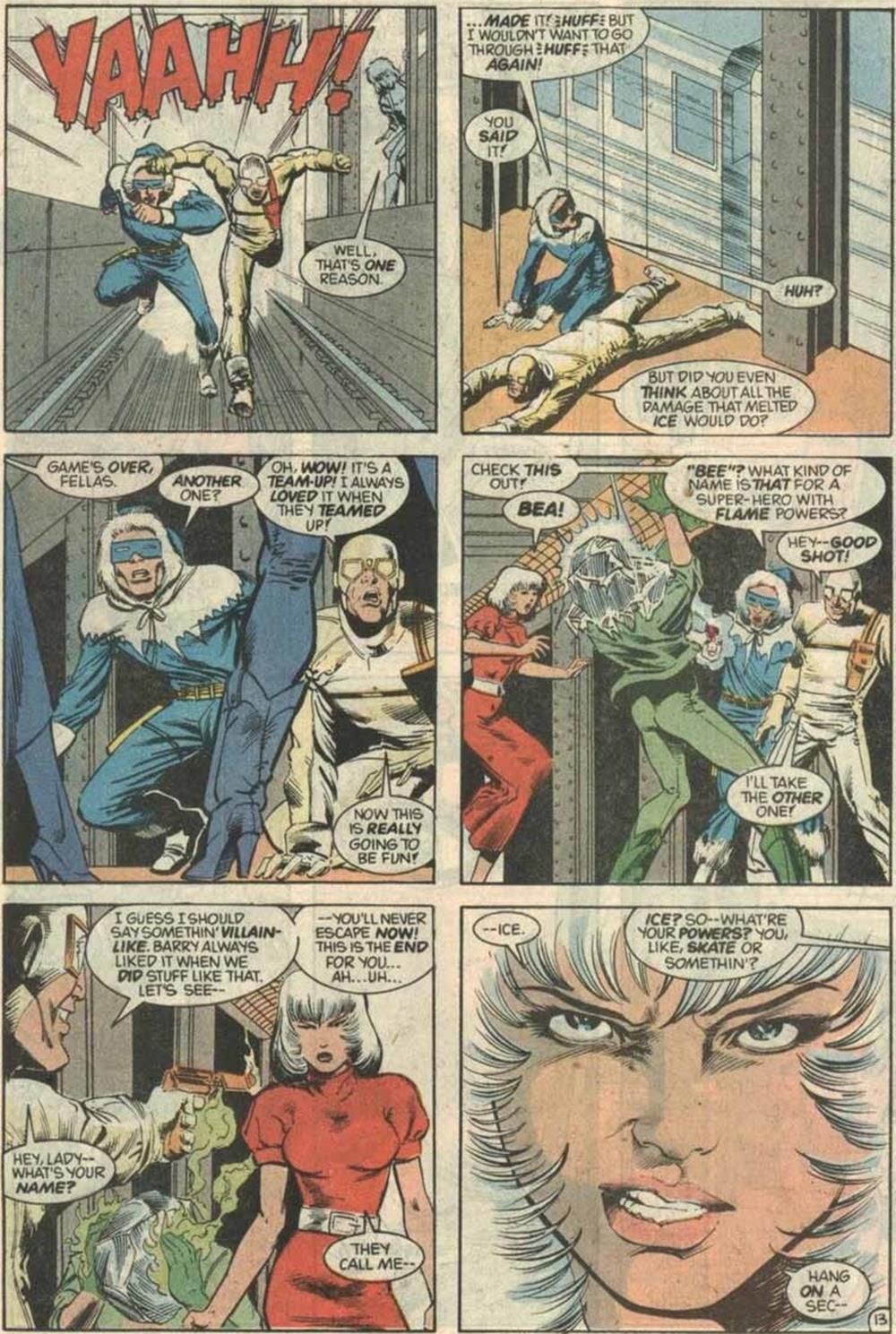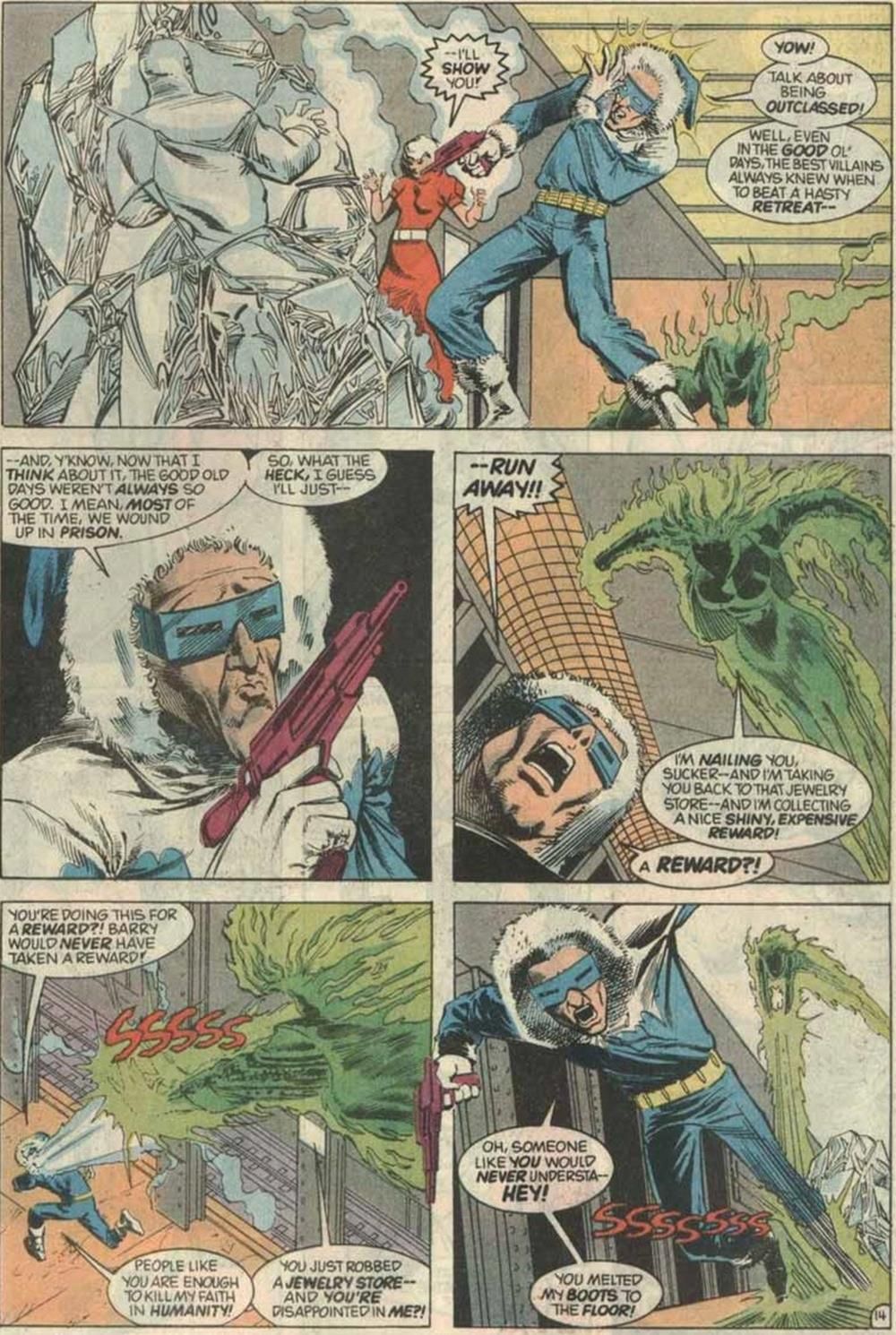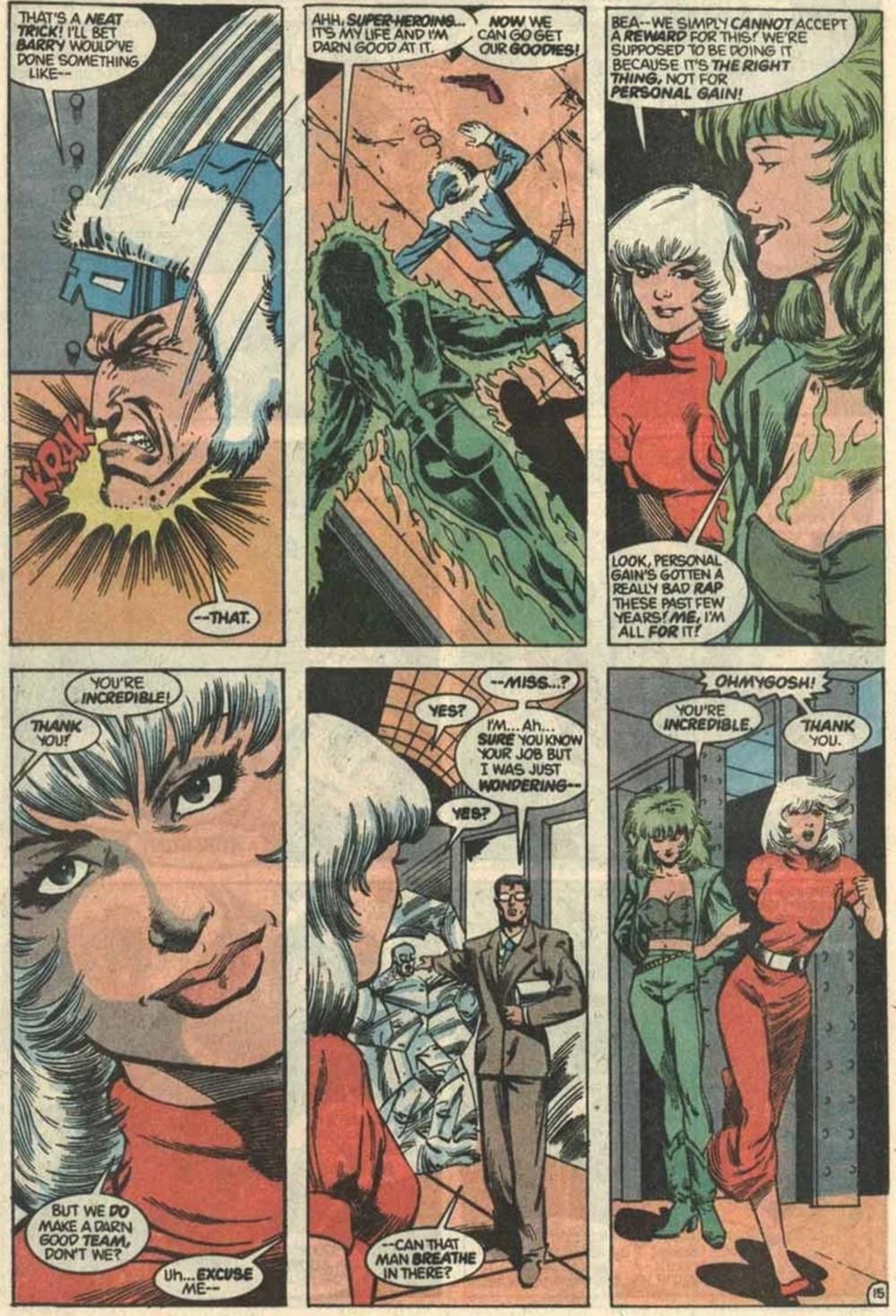In Drawing Crazy Patterns, I spotlight at least five scenes/moments from within comic book stories that fit under a specific theme (basically, stuff that happens frequently in comics).
Today, we look at a particularly odd trend in DC Comics following Crisis on Infinite Earths, which is the "loser-ification" of DC Silver Age villains, with DC villains that were treated as actual threats before Crisis were now treated as jokes after Crisis (almost as if DC's writers were embarrassed by their past). Now, don't get me wrong, almost all of the examples on this list come from one creative team (Keith Giffen and J.M. DeMatteis), but that's partially because they're the most notable examples. There is at least one example on this list that is from a prominent writer who had written notable stories WITH THAT VILLAIN before Crisis, so it was especially odd to see him then decide that the villain was a loser Post-Crisis.
We begin with Justice League International #23 (by Keith Giffen, J.M. DeMatteis, Kevin Maguire and Joe Rubinstein), which introduced the Injustice League. Justice League International, by this point, had famously become a bit of a situation comedy comic book series (seeing superheroes as "just like us"), so this was an attempt to do a villain team in the same way, so it took a couple of notable Silver Age villains in Major Disaster and Multi-Man and teamed them up with some lesser characters like Cluemaster and Big Sir and Bruce (Disaster's prison cellmate) and turned them into jokes...
Five issues later (in Justice League America #28, by Keith Giffen, J.M. DeMatteis, Ty Templeton, Mike McKone and Joe Rubinstein), Ice has finally agreed to go on a date with Guy Gardner and he decided to take her to a porn theater. The porn theater happens to be owned by former Green Lantern supervillain, Black Hand...
When Black Hand decides to confront them, it goes poorly for Black Hand...
He then has a nervous breakdown.
In 1988, DC did a bit called "Bonus Book," where they would include mini-comics in the middle of the regular comics with mostly unknown younger talents who were trying to get hired by DC Comics. In the bonus book in Flash #12, we see Doctor Light begin down his path to being a joke character (this was a guy who had taken on the entire Justice League by himself). He escapes custody and ends up in a small town...
But a couple of kids are inspired by their parents' secret history as a kid superhero team during the Golden Age, so they become new versions of their parents' superhero team and defeat Doctor Light easily, despite not having any powers...
Page 2: [valnet-url-page page=2 paginated=0 text='See%20More%20Examples']
One of the stranger ones is Question #26, by Denny O'Neil, Bill Wray and Malcolm Jones III, despite O'Neil having written him back in the early 1970s, the Riddler has now been revamped to be a total joke character...
Surprising take on the situation by O'Neil, who was also the editor of the Batman line of books at the time, so it was very notable that he saw Riddler this way back then.
A couple of years later, Justice League America #43 (by Keith Giffen, J.M. DeMatteis, Adam Hughes and Jose Marzan Jr.) saw the old Green Lantern villain, Solar, get the treatment when his bank robbery inadvertently draw the attention of the Justice League (who briefly had Orion and Lightray as members)...
He wonders why he rates and we see that it wasn't really on purpose that they came to arrest him...
Sonar's gambit paid off, as his sonic blaster broke enough glass that Fire melted it together, which caused more problems than it solved, as now it was a big gint piece of glass falling on the streets below...
Later, we see Blue Beetle laugh and laugh at how they couldn't handle Sonar...
Finally, one of the odder ones is a story in Justice League Quarterly that shows how Captain Cold and Heatwave decide to do an old-fashioned bank robbery...
Fire and Ice are out shopping when Fire determines that there must a reward for capturing Captain Cold and Heawave, so they hunt them down and make the villains look bad...
This is just six instances of a trend that was pervasiveness back in the day. Feel free to write in with other notable examples!
That's it for this edition of Drawing Crazy Patterns! If anyone else has ideas for things that get repeated a lot that you'd like to see me spotlight, drop me a line at brianc@cbr.com!

